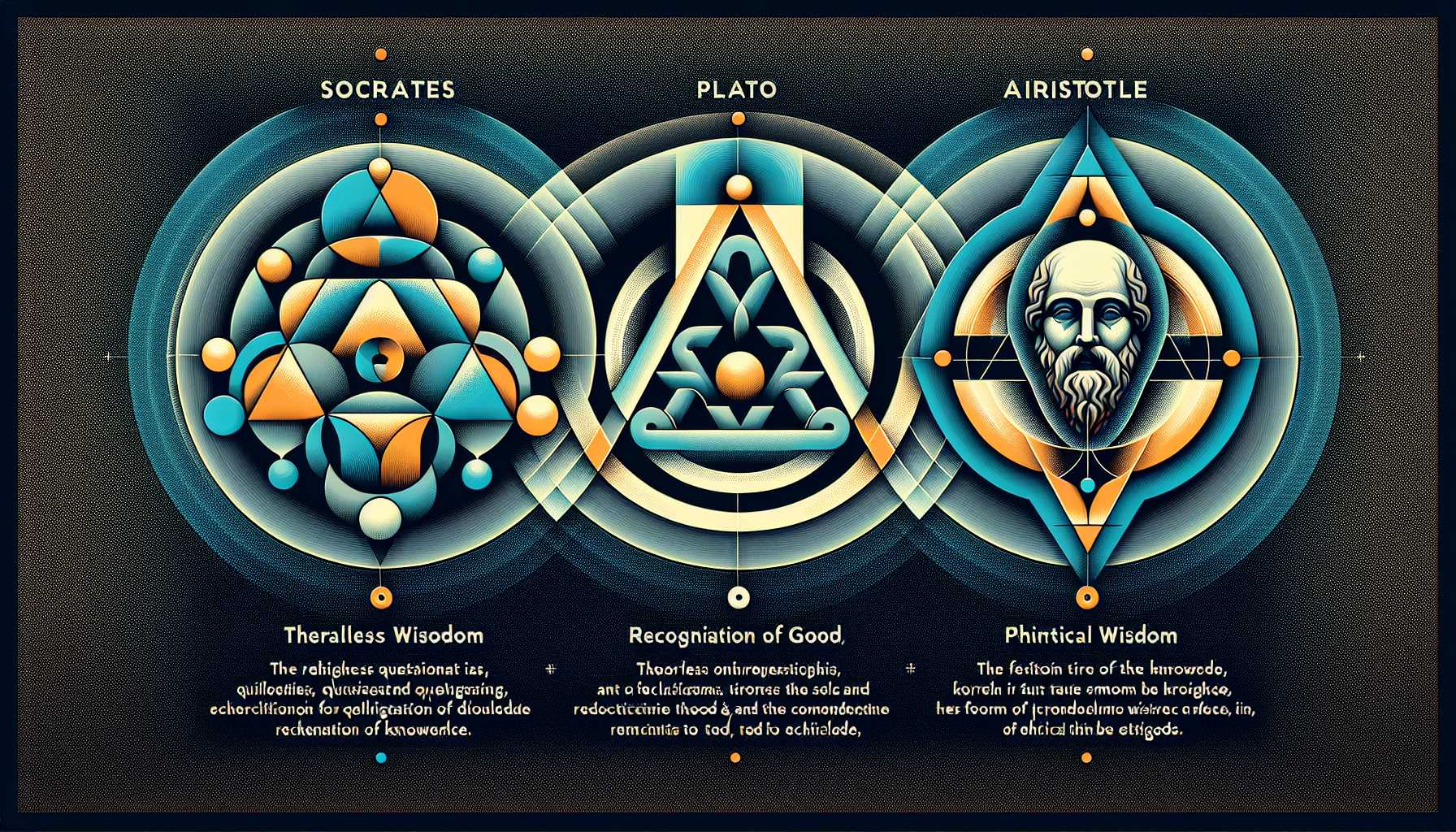
Wisdom Through the Ages Socrates Plato and Aristotles Insights
The article from the Wisdom Center at the University of Chicago discusses the perspectives of three foundational philosophers — Socrates, Plato, and Aristotle — on the concept of wisdom.
O artigo do Centro de Sabedoria da Universidade de Chicago discute as perspectivas de três filósofos fundamentais - Sócrates, Platão e Aristóteles - sobre o conceito de sabedoria.
Socrates is characterized by his approach of relentless questioning and dialogue, emphasizing that true wisdom involves recognizing one’s own ignorance.
Sócrates é caracterizado por sua abordagem de questionamento incessante e diálogo, enfatizando que a verdadeira sabedoria envolve reconhecer a própria ignorância.
He viewed wisdom as a moral quality, deeply linked to how one lives and interacts with others, famously stating that 'the unexamined life is not worth living.'
Ele via a sabedoria como uma qualidade moral, profundamente ligada à maneira como se vive e interage com os outros, afirmando famosamente que 'a vida não examinada não vale a pena ser vivida.'
Plato, a student of Socrates, elaborates on the notion of wisdom in his works, especially in 'The Republic,' where he describes the philosopher-king as the ideal ruler.
Platão, um estudante de Sócrates, elabora a noção de sabedoria em suas obras, especialmente em 'A República', onde descreve o rei-filósofo como o governante ideal.
For Plato, wisdom is an understanding of the Forms, particularly the Form of the Good, and is essential for achieving justice and knowledge.
Para Platão, a sabedoria é uma compreensão das Formas, particularmente a Forma do Bem, e é essencial para alcançar a justiça e o conhecimento.
He believed that wisdom has a rational foundation and is connected to a higher truth that transcends the material world.
Ele acreditava que a sabedoria tem uma base racional e está conectada a uma verdade maior que transcende o mundo material.
Aristotle, Plato's student, provides a more practical view of wisdom, classifying it into two types: theoretical wisdom (sophia) and practical wisdom (phronesis).
Aristóteles, aluno de Platão, fornece uma visão mais prática da sabedoria, classificando-a em dois tipos: sabedoria teórica (sophia) e sabedoria prática (phronesis).
He emphasizes that wisdom is not just about knowledge, but also about the ability to apply knowledge in practical situations.
Ele enfatiza que a sabedoria não se trata apenas de conhecimento, mas também da capacidade de aplicar o conhecimento em situações práticas.
Aristotle sees wisdom as a virtue, closely tied to ethical behavior, suggesting that a wise person is one who makes sound judgments and decisions that lead to a good life.
Aristóteles vê a sabedoria como uma virtude, intimamente ligada ao comportamento ético, sugerindo que uma pessoa sábia é aquela que toma decisões e julgamentos sensatos que levam a uma boa vida.
Consequently, each philosopher offers unique insights into the nature of wisdom, reflecting their larger philosophical schools of thought.
Consequentemente, cada filósofo oferece percepções únicas sobre a natureza da sabedoria, refletindo suas maiores escolas de pensamento filosófico.
Based on this article
